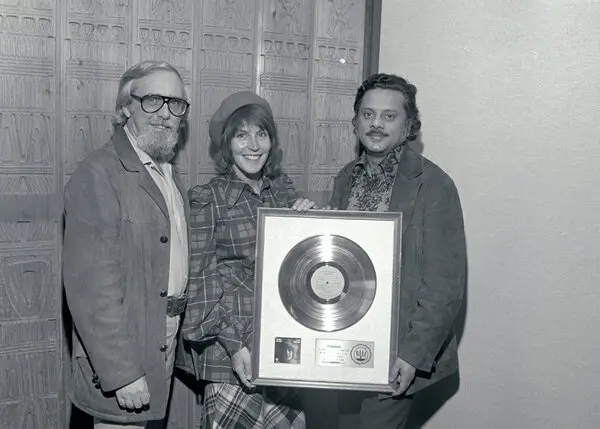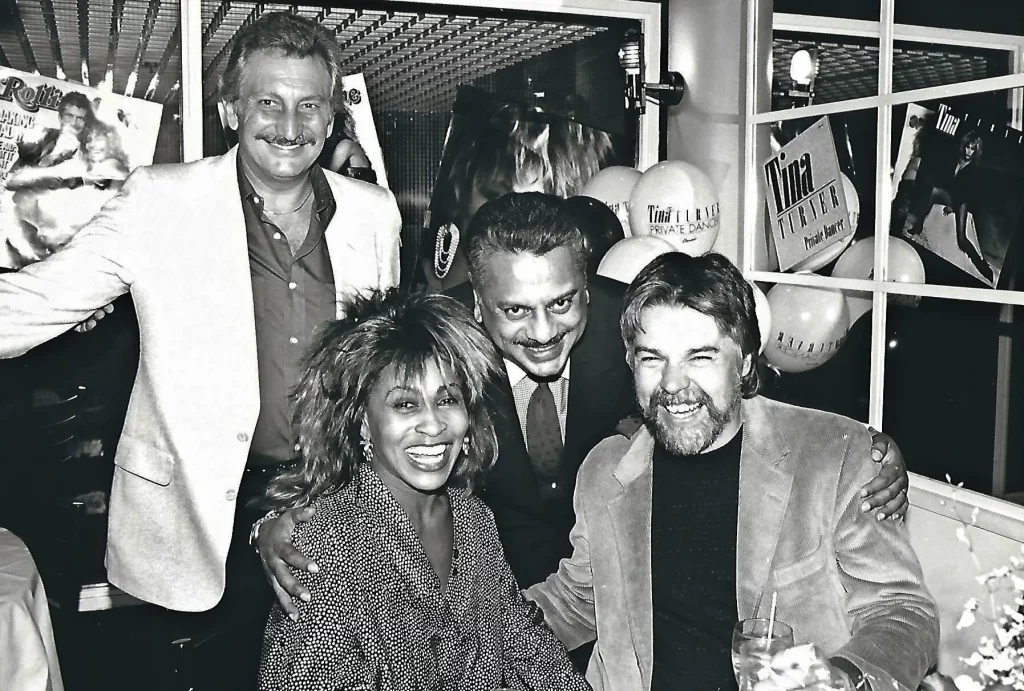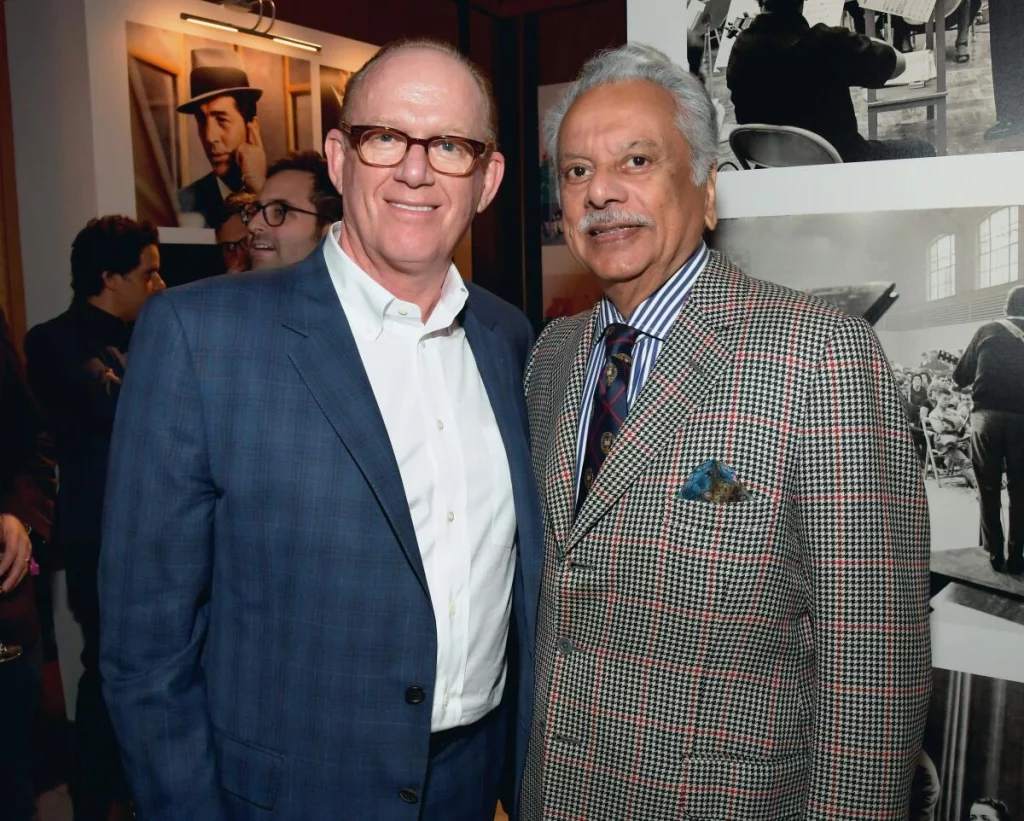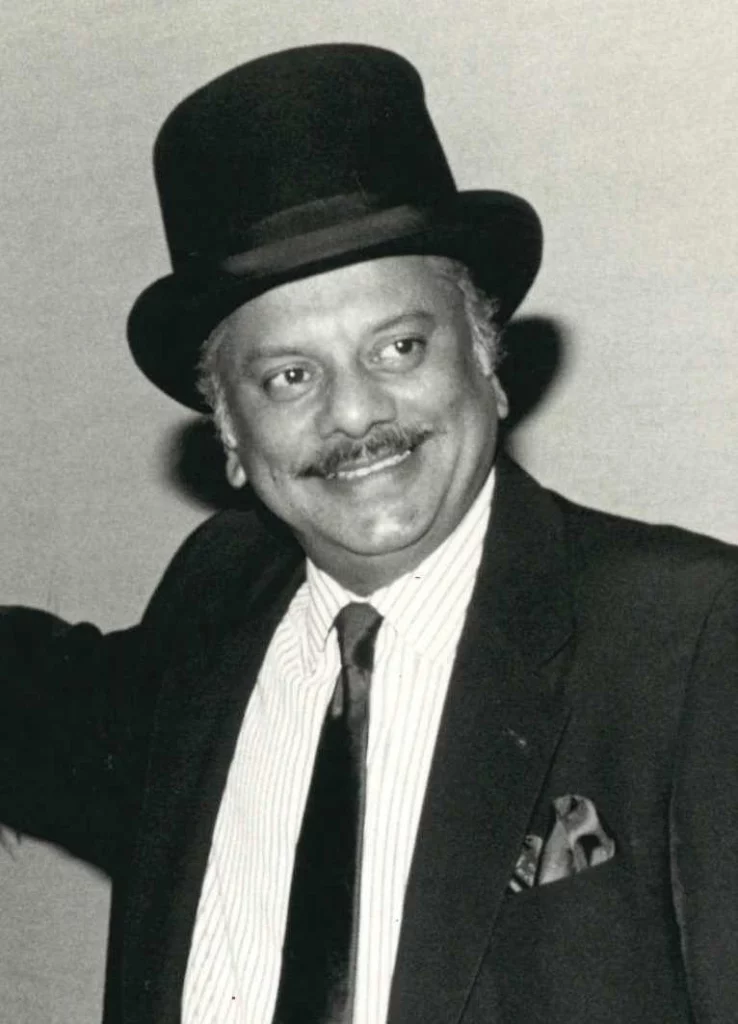(April 25, 2025) In the glittering world of global stardom, names like The Beatles, Pink Floyd, and Queen transformed the soundscape of the 1960s and 1970s, each leaving a distinct imprint on modern music. The Beatles revolutionized pop and rock with their genre-defying creativity; Pink Floyd pioneered the art of psychedelic and progressive rock; and Queen delivered theatrical, anthemic rock that pushed artistic frontiers. While these bands captivated audiences worldwide, a sharp-minded, Oxford-educated business executive from Kerala, Bhaskar Menon, worked quietly in the background, orchestrating their ascent with remarkable precision. Far from the limelight, Menon became the architect of their global reach.
He wasn’t just another executive in a suit. Menon was the Keralite Kingmaker of Rock ‘n’ Roll, a rare figure of Indian origin to shape the Western music industry at its peak. So commanding was his influence that the Western press once dubbed him “the man who runs Rock ’n’ Roll.” If The Beatles and Pink Floyd were the voice of a generation, Menon was the amplifier and the force that ensured their music resonated across borders and decades.
As pop and rock surged into a multibillion-dollar cultural force, Menon steered its commercial rise from boardrooms in London and Los Angeles. As the first chairman and CEO of EMI Music Worldwide, the global powerhouse behind some of the biggest names in music, he engineered daring marketing campaigns and built platforms that turned records into cultural landmarks.

Bhaskar Menon during his days as EMI Music Worldwide Chief
Menon’s genius lay not just in selling music, but in making it matter. The business executive chose influence over attention, preferring the strategic quiet of boardrooms to the spectacle of greenrooms. “Uncompromising excellence in what you do goes without saying. We expect more than that,” he once said that gave a glimpse into the mantra that defined his leadership.
Bhaskar Menon passed away in 2021 at the age of 86, leaving behind a legacy heard in every corner of the world where music plays.
A maestro behind the curtain
Born in Trivandrum in 1934 to Saraswathi and K.R.K. Menon, India’s first finance secretary Bhaskar grew up amidst the strains of classical Indian music that echoed through his home. From Doon School in Dehradun to Christ Church, Oxford, his education was a confluence of elite discipline and cosmopolitan thought.
Bhaskar Menon began his professional journey with EMI in London in 1956, at a time when the post-World War II music industry was still rooted in analog formats and traditional business models. He brought with him a global perspective and Indian sensibility. These were the qualities that would soon prove essential as the industry faced an impending cultural shift.
His first major leadership role, however, came a few years later, when he was appointed chairman of EMI’s Indian subsidiary, the Calcutta-based The Gramophone Company of India, better known to listeners as His Master’s Voice (HMV). There, he honed his skills managing diverse musical talent and navigating the nuances of a cross-cultural market.
Recognizing his strategic brilliance, EMI eventually brought him back to London as director of international operations. It wasn’t long before he was transferred to Los Angeles in the U.S., where his influence would reach its fullest expression on the world stage.

Bhaskar Menon with singer Tina Turner, film editor Don Zimmerman (left) and singer Bob Seger (right).
The rock star without a guitar
EMI, the major British music company Menon worked for, was one of the biggest record labels in the world. Capitol Records, an iconic American label, became part of EMI’s empire and operated as a powerful U.S. subsidiary. Though part of the same legacy, the two were distinct entities. While EMI held the global reins, Capitol was its American stronghold. From this transatlantic axis, Menon helped unify the company’s operations and drive both its British and American arms to global stardom.
When Capitol Records was bleeding money with losses of $15 million, Menon, the then President and CEO of Capitol didn’t flinch. Within a year, he swung the company back into profit, employing what industry insiders called surgical brilliance. This achievement set the stage for a major turning point at EMI, bringing its far-flung operations under one unified global structure, a transformation he would eventually lead as chairman and CEO of EMI Music Worldwide.
Dark side of the genius
No project epitomizes Menon’s legacy more than The Dark Side of the Moon, Pink Floyd’s iconic 1973 album. It became a seismic moment in music history, and Menon was the gravitational force.
With Capitol Record’s marketing chief Al Coury, Menon masterminded a PR blitz that took a British cult band and turned them into a global brand. Against the band’s initial reservations, he insisted on releasing edited singles, “Us and Them” and “Time” for American radio, a move that proved pivotal.

Bhaskar Menon with Steve Barnett, Capitol Music Group Chairman and CEO at Hollywood Gala in 2016 / WireImage
“I was overwhelmed by the power of the compositions, combined with the dramatic strength of the work in ‘live’ performance, which I still am today more than four decades later,” he said in a 2013 interview. “From the time we released The Dark Side of the Moon, each of us who was closely involved were pretty intuitively certain that we were unlikely to ever encounter a comparably stunning experience again soon in our professional careers.”
His hunch proved right. The album spent 741 consecutive weeks on the U.S. Billboard charts, more than 14 years, and remains the fourth highest-selling album globally.
Rocking for a cause
Menon’s influence extended beyond the business of music into the realm of global humanitarian efforts. In 1971, George Harrison, guitarist of the legendary band The Beatles and Indian sitar maestro Ravi Shankar organized the Concert for Bangladesh. It was the world’s first major benefit concert to raise funds for refugees fleeing the war-torn region. Menon was entrusted with untangling the complex legal challenges involved in releasing the concert album, which featured artists from multiple record labels. Although he was initially blamed for delays, it was later revealed that Harrison’s manager had obstructed the process for personal gain.
Despite the setbacks, it was Menon’s Capitol/EMI that ultimately released the landmark triple album, amplifying global awareness of the Bangladeshi refugee crisis and laying the groundwork for future philanthropic music events like Live Aid.
A global diaspora icon
For the Indian diaspora, Menon was more than just a suit in a western office. He was a pioneering Keralite who wielded global influence in a space overwhelmingly dominated by white executives. He mentored talent across continents and opened doors for diversity before the term became industry lingo.
He was a man who could speak of Carnatic ragas and rock music with the same fluency as the quarterly earnings of the music company he worked for. It’s no surprise then that France awarded him the Chevalier de l’Ordre des Arts et des Lettres in 1990 as he joined a pantheon that included Leonard Cohen and Ray Charles.
From EMI to NDTV and back to his roots
Even after retiring from EMI in 1990, Menon didn’t slow down. He founded International Media Investments Inc. in Beverly Hills, advising on entertainment ventures from Hollywood to Mumbai. He also served on the board of NDTV.com from 2005 to 2016, bridging Indian media with global capital.
In his later years, he remained a fixture in music circles. “Some of us old-timers celebrated the 40th anniversary of Dark Side with high spirits,” he quipped in 2013.
He passed away in 2021 at the age of 86, survived by his wife Sumitra (daughter of celebrated artist K.C.S. Paniker) and two sons. But his legacy is immortal, etched in platinum records and soundscapes that shaped generations.

Bhaskar Menon
Echoes of a legacy
In an industry that rarely remembers its executives, Bhaskar Menon remains the rare exception. He was a music mogul with soul. A businessman with taste. A Keralite kingmaker who turned global rock into a polished product and a timeless experience.
Perhaps Andy Taylor, the guitarist of the iconic British band Duran Duran said it best, “The company was headed by the legendary music industry figure, Bhaskar Menon, who’d presided over EMI during the rise of the Beatles.”
Bhaskar Menon didn’t strum a guitar or belt a high note. But he composed a symphony that still reverberates through the halls of music history.
ALSO READ: Taking Brand India to the world: MM Keeravani at the Golden Globes



